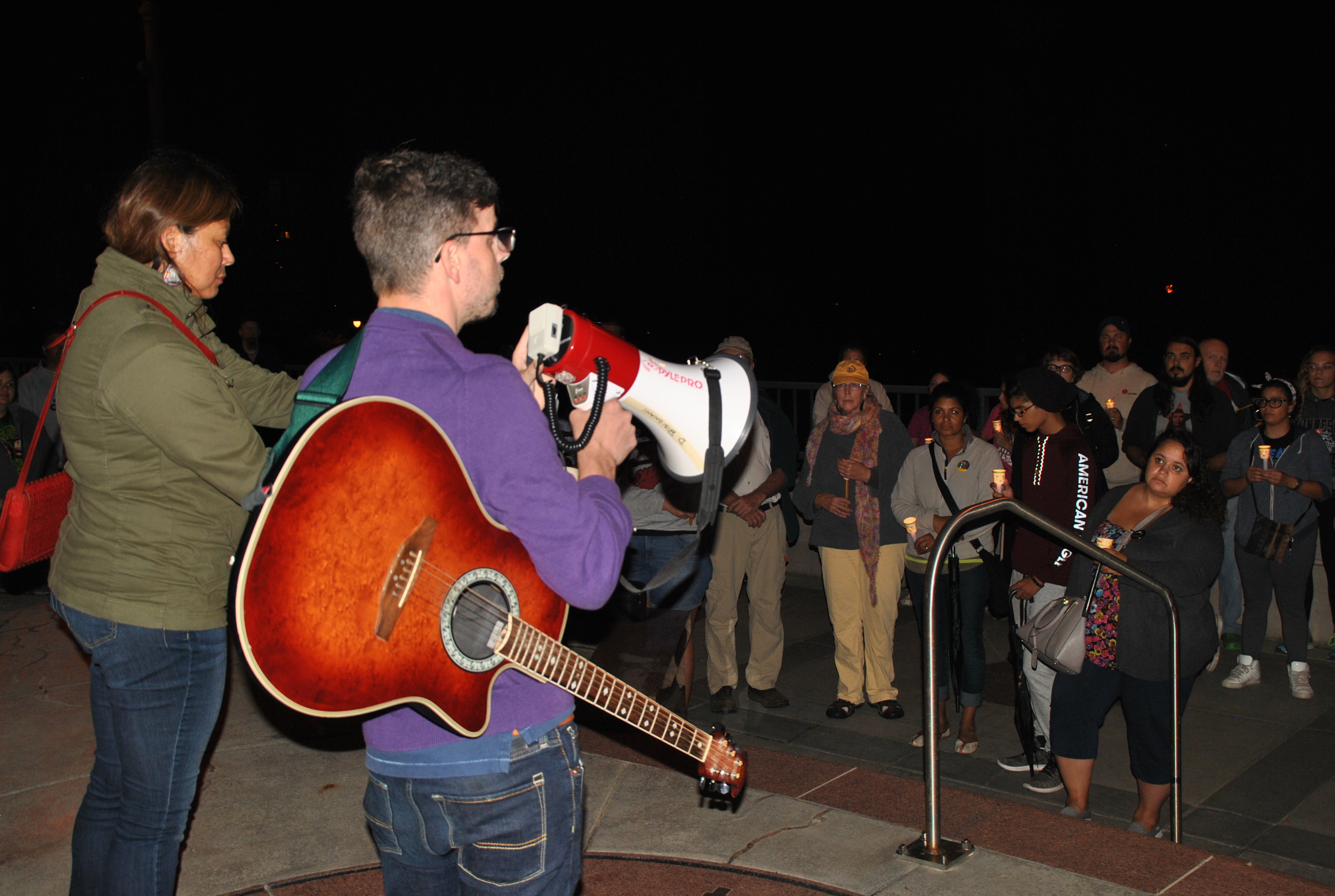News | October 9th, 2017
F
The resolution was originally written by Moorhead City Councilwoman Mari Dailey, then passed to the American Federation of Labor and Congress of Industrial Organizations, or AFL-CIO, and then on to the Human Relations Commission in September, before it was handed over to city officials. The resolution requires city leaders to officially recognize hate crimes, speak out when hate crimes are committed, and puts additional pressure on the city to become a more inclusive city. The same resolution passed unanimously in Moorhead.
City Commissioner Dave Piepkorn was the lone voice against the resolution, which passed before a room full of concerned citizens.
“It doesn’t accomplish anything,” Piepkorn said after the meeting. “We got more important things to do.”
Human Relations Commission Chair Rachel Hoffman presented the resolution saying it was a statement about Fargo being an inclusive community, and that the city will no longer tolerate hate crimes.
“Asking us to weigh in on an inclusive memorandum for our city, the exact same resolution went before Moorhead, and will go before West Fargo, and will be a regional approach to the issue of inclusion,” City Commissioner John Strand said.
He reminded city leaders and the crowd present that this was the week that white supremacist rallies and counter rallies were planned days following the Charlottesville, Virginia AltRight rally that left one woman, Heather Heyer, dead.
“That is part of the context about inclusion, and we want to be positive and inclusive of all people,” Strand said. He went on to point out that weeks ago Amazon was looking for a city to invest in, and people asked “Why not Fargo?” Strand said.
“Inclusion is a fundamental requirement by Amazon,” Strand said. “They will only move to a community that is inclusive, and this is a contemporary topic and one we should be embracing in every regard, and we should always be respectful of every individual, and protecting of every individual.”
North Dakota currently does not have hate crime legislation; Minnesota does. Already in 2017, Fargo has documented at least six crimes that were racially motivated, or are being investigated as potentially racially motivated crimes.
Barry Nelson, of North Dakota Human Rights Coalition, is one of the leaders who plans to propose hate crime legislation to state government in 2018. An attempt at establishing hate crime laws was previously made, and failed, but today, North Dakota is second in the nation for hate crime incidents, per capita.
To combat hate crimes, which are different than crimes of a similar nature, laws must be made, advocates of hate crime legislation say. Hate crimes are different because they are based on hate, intolerance, and misunderstanding, and victims can possibly be chosen at random, as in the case at a local Walmart when Amber Elizabeth Hensley screamed, “We’re going to kill all of you…” to three Somali American women this summer.
The resolution comes at a time when the city is also looking into discovering the costs of refugees, a movement spearheaded by Dave Piepkorn, who sees refugee resettlement as an “unfunded mandate,” and maintains that the state should have more of a say in deciding how many refugees it can take per year.
During the same city commissioners’ meeting,, Fargo Cass Public Health Director Ruth Roman gave a report saying her agency looked at the Family Health Care Center, Lutheran Social Services of North Dakota, and Cultural Diversity Resources for interpreting services, and decided the city should stick with Family Health Care Center.
Typically, $25,000 is used per year for translation and interpreter fees, but the costs are increasing up to approximately $36,000, Roman said.
Currently, Fargo is footing the bill for translation and interpretation fees on medical issues, monies which are not entirely used on refugees. International students, visitors, among others, are included in such services, Roman said.
“Yes, some of this is for our new Americans,” Roman said. “But not all are refugees.”
Interpretation services must be offered to obtain other federal monies, Roman said. At first she relied on family members to help translate, but that tactic proved to be unreliable at best.
“We should be getting reimbursed, this is Fargo money and it’s very confusing and I’m not that bright of a guy,” Piepkorn said. He added that 80 percent of the refugees coming to North Dakota are brought to Fargo.
“I’m asking about tax monies, and I don’t apologize for asking these questions,” Piepkorn said. “What’s funny is that they’re the ones calling me racial epithets, isn’t that funny? But I got thick skin.”
“I want us to be cautious that we do not single any groups out,” Strand said. “All citizens deserve equitable treatment under the law.”
February 16th 2026
January 27th 2026
January 27th 2026
January 26th 2026
January 24th 2026
_(1)_(1)_(1)_(1)_(1)__293px-wide.jpg)
_(1)_(1)_(1)_(1)_(1)__293px-wide.jpg)
__293px-wide.png)


_(1)__293px-wide.png)